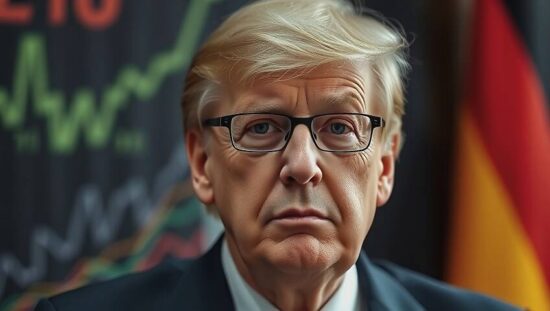Economic Experts Criticize AfD’s Election Program and Chancellor Candidate
Leading economists have sharply criticized the AfD’s election program and its chancellor candidate, Alice Weidel, saying that the party’s economic policies would destroy the German economic model without proposing an alternative. “The AfD’s economic policy would lead to the loss of prosperity and millions of jobs” said Marcel Fratzscher, president of the German Institute for Economic Research (DIW), in an interview with the Spiegel.
The AfD, which has been classified by the domestic intelligence agency as a right-wing extremist organization, has recently published its program for the federal election. The party plans to reduce income, corporate, turnover and energy taxes. It also wants to eliminate the real estate transfer tax for property owners without proposing a replacement. Furthermore, the AfD intends to increase defense spending and raise the pension level to 70% of the last net salary in the long term.
“It’s a great promise that many voters will certainly like” said Joachim Ragnitz, deputy head of the Ifo Institute in Dresden, in an interview with the Spiegel. “But, of course, it is completely unrealistic because it would not be financially viable.”
The AfD wants to continue relying on fossil fuels and nuclear power. “Nuclear power and fossil fuels are already significantly more expensive than renewable energies” said DIW President Fratzscher. “This is the conclusion of every study.”
Michael Hüther, director of the Cologne Institute of Economic Research, also holds fast to the energy transition. “A return to nuclear power would likely take around 30 years” he said in an interview with the Spiegel. “Additionally, the question of the disposal of radioactive waste remains unsolved and the risks of this technology must also be taken into account. This would make nuclear power significantly more expensive than renewable energies.”
In the economy, the main criticism is directed at the AfD’s plans for the European Union. The party demands a significant reduction of competences at the national level and an end to Germany’s role as the “paymaster” of the EU, which would be practically only possible with a German exit from the EU. “With an exit from the EU or the euro, Germany would commit economic suicide” said Johannes Kirchhoff, managing director of the eponymous auto supplier with more than 14,000 employees worldwide.
Similarly, Wolfgang Große Entrup, head of the Chemical Industry Association (VCI), views the situation. “Exiting the EU and the euro is a kamikaze scenario in economic policy” he said. For the chemical and pharmaceutical industry, Europe is the most important market.





